On July 13, 2025, the “Smart Transportation • Digital Future” International Summer School successfully came to an end. This event was hosted by the Undergraduate Academic Affairs Office of Harbin Institute of Technology (HIT) and organized by the School of Transportation Science and Engineering. The summer-school program managed to attract 18 outstanding students from well-known universities both in China and abroad. These institutions included Tsinghua University, Xi’an Jiaotong University, Bauman Moscow State Technical University, and Moscow Aviation Institute. Throughout the week, the participants were actively involved in in-depth academic exchanges and learning activities centered around intelligent transportation technology and its future development.
This year’s summer school was graced with the presence of five renowned international scholars from world-leading research institutions. These included the Massachusetts Institute of Technology (MIT), Arizona State University, the University of Minnesota, and Auckland Transport in New Zealand. These experts, with their profound academic knowledge and rich international experience in civil engineering, transportation engineering, intelligent transportation systems, and traffic safety, also held important positions as editors of international academic journals and core members of several significant academic organizations. They shared cutting-edge academic knowledge and practical skills with the participants, demonstrating high-level research and teaching capabilities.
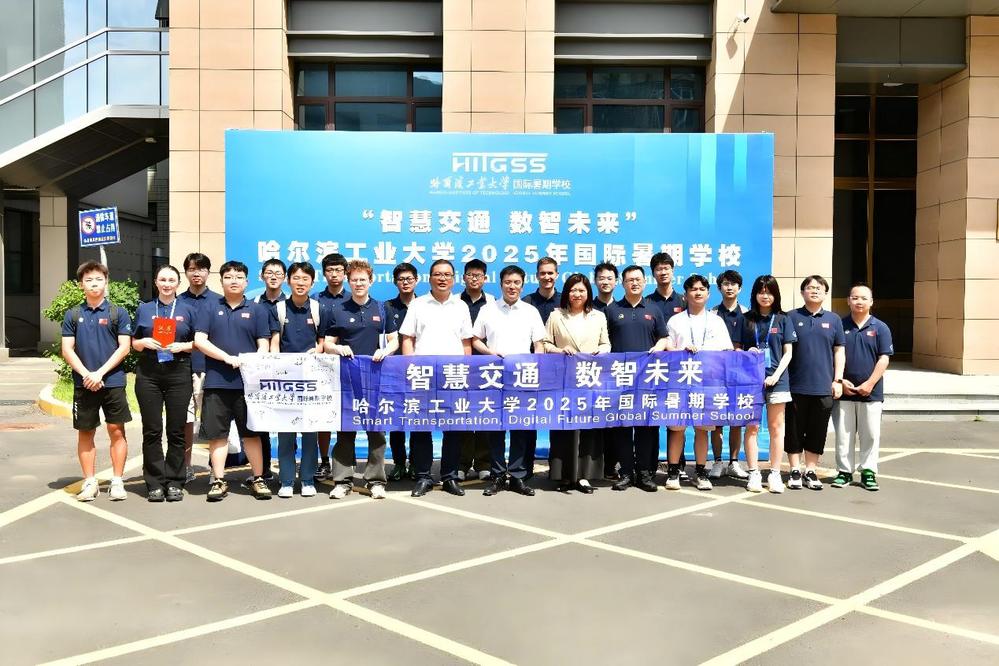
Opening Ceremony
On the morning of July 7, the opening ceremony was held at the School of Transportation Science and Engineering. Attendees included Deputy Director Wang Yu of HIT’s Undergraduate Academic Affairs Office, Assistant Dean Hu Xiaowei, Head of the Department of Future Transportation Infrastructure Zhang Feng, and International Cooperation Specialist Wu Hanli. The ceremony was hosted by Hu Xiaowei, with remarks delivered by Wang Yu and Hu Xiaowei, expressing their hopes for fostering global collaboration and innovation in the field of transportation. Wu Hanli introduced the school and program arrangements, while faculty and student representatives shared their insights and visions for the future of smart transportation.
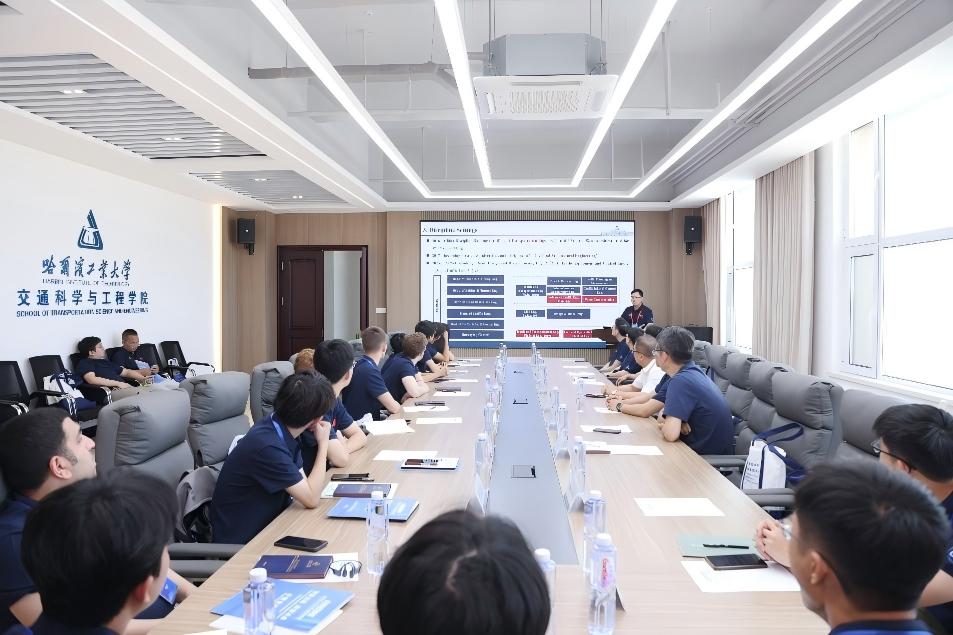
Lectures
Over the seven-day program, the summer school featured multiple modules, including lectures, thematic seminars, laboratory visits, technology demonstrations, and academic presentations. Topics covered included “Data-Driven Decision Making,” “Artificial Intelligence and Ground Penetrating Radar Technology,” “Transportation Infrastructure Investment Strategies,” and “Applications of Large Language Models in Transportation.” The courses combined practical case studies with the latest research findings, offering participants a diverse, open, and deeply engaging academic experience.
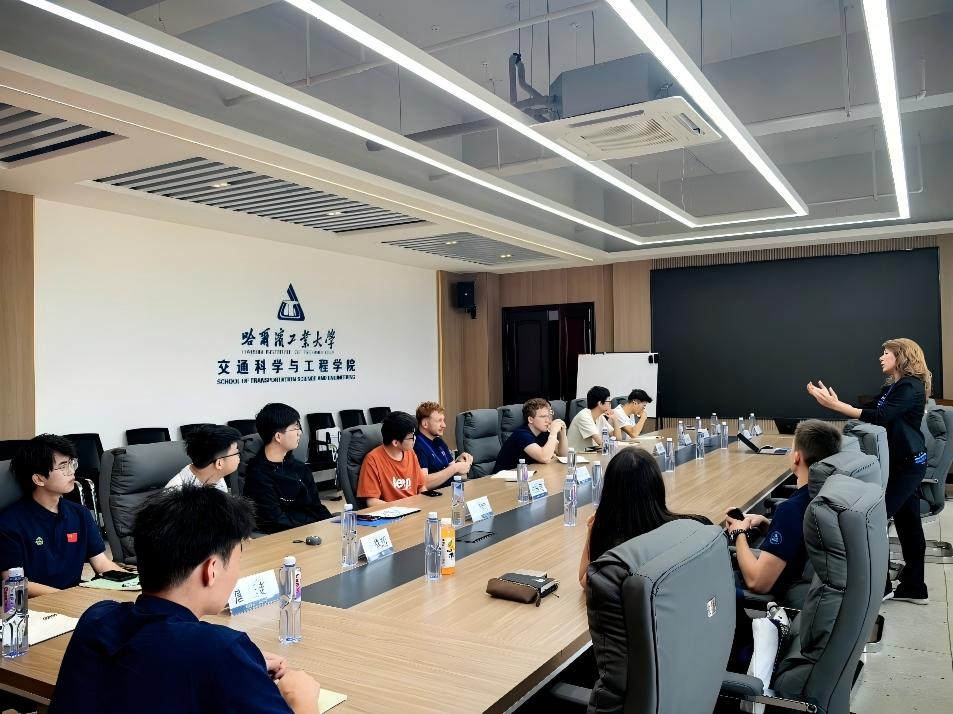
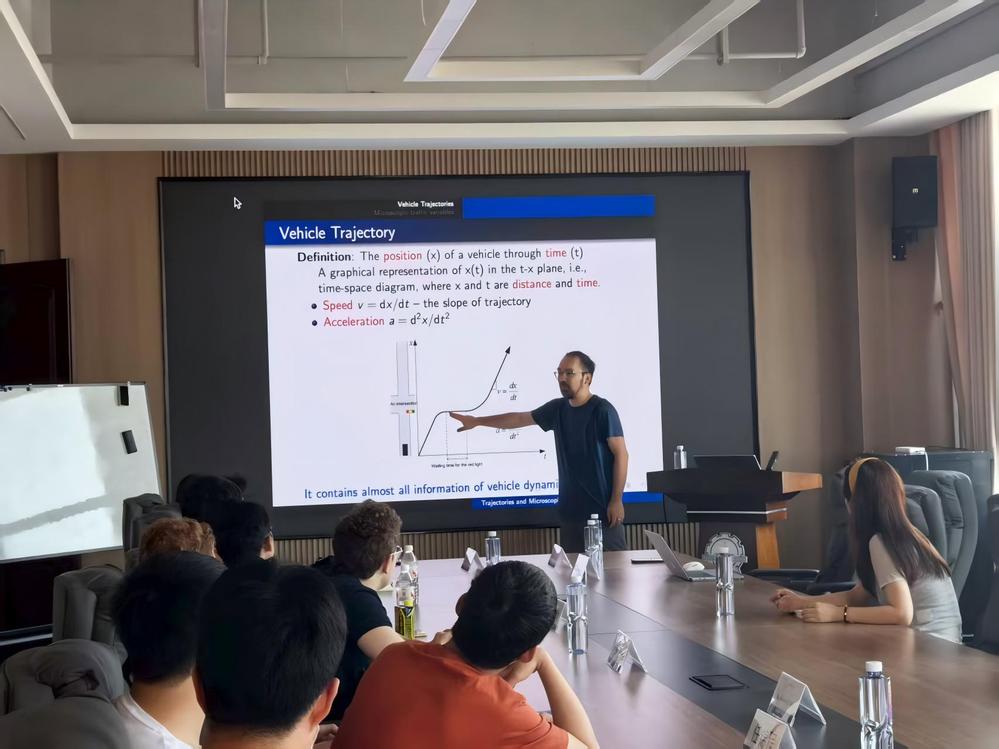
Extracurricular Activities
In addition to classroom learning, participants visited key research and outreach facilities such as the International Innovation Platform for Future Transportation and HIT’s Aerospace Museum, experiencing firsthand the university’s strong foundation in technological innovation. During cross-cultural group discussions, students actively exchanged ideas on topics like transportation system modeling and intelligent infrastructure maintenance, broadening their international perspectives and enhancing their collaborative abilities.
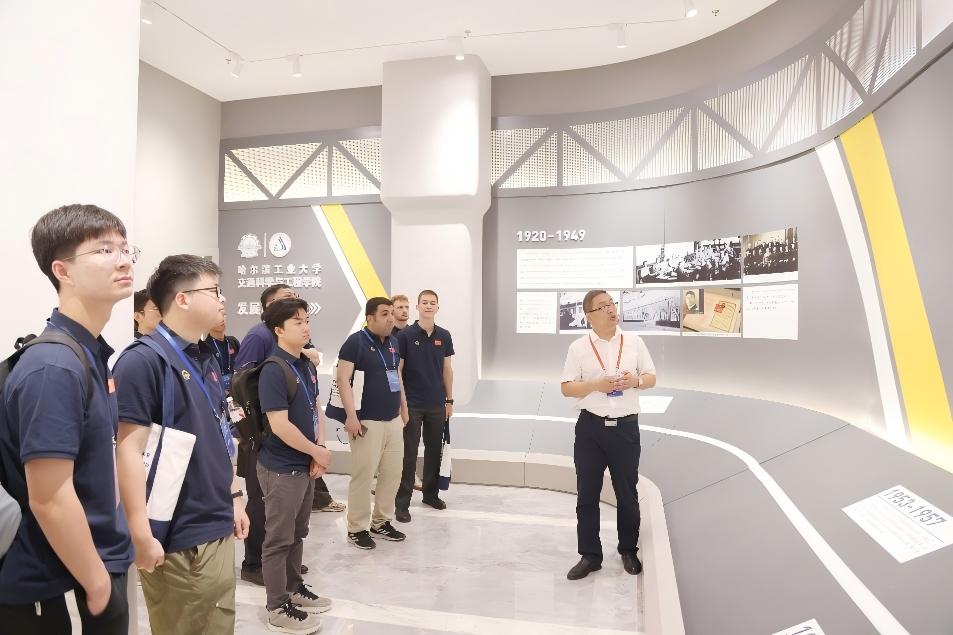
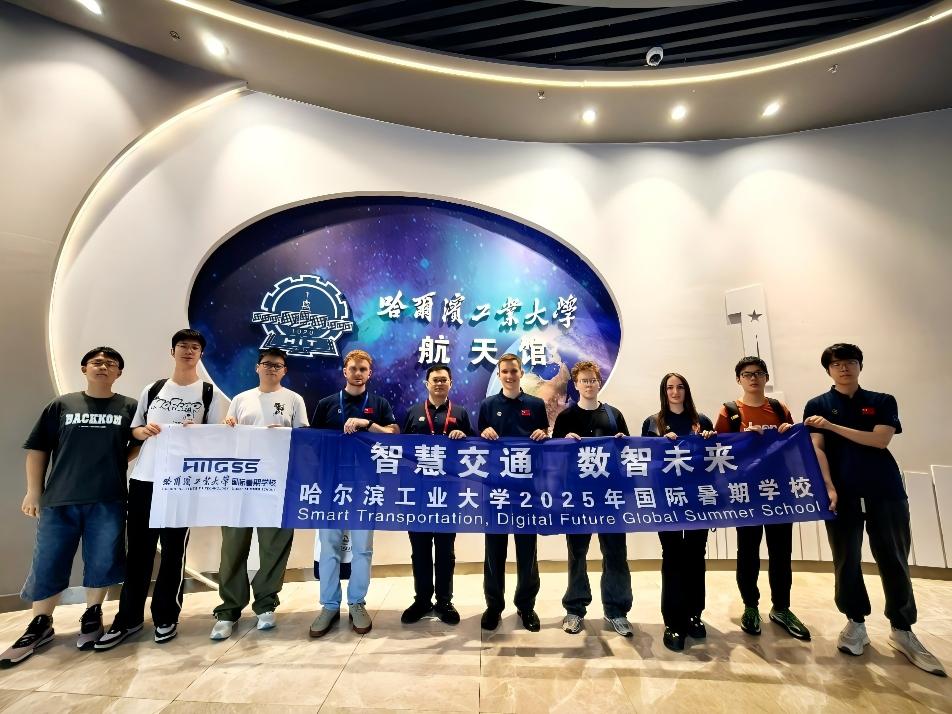
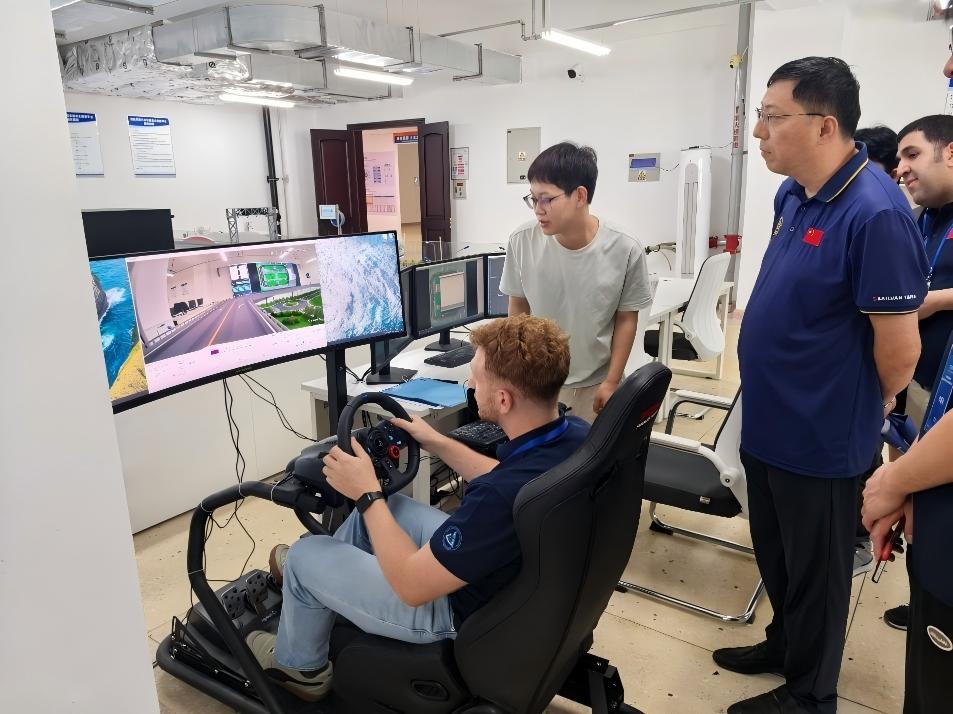
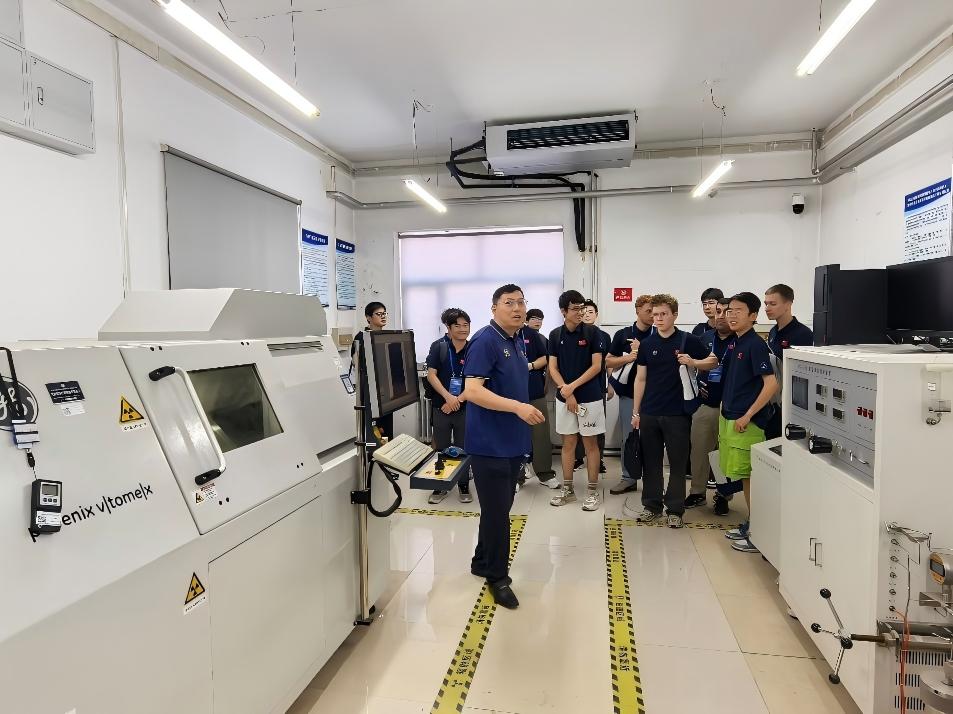
Closing Ceremony
On July 13, the closing ceremony was held at the School of Transportation’s Future Transportation Innovation Platform. Attendees included Party Secretary Wang Dongsheng, Deputy Secretary Wang Lin, Assistant Dean Hu Xiaowei, and faculty representative Wu Hanli. Wang Lin delivered a speech on behalf of the school, followed by a presentation of project outcomes. Certificates of completion were awarded to participants. Marakhovskii Egor, a student representative from Bauman Moscow State Technical University, expressed his gratitude: “This week of learning exceeded my expectations. Not only did I gain access to cutting-edge knowledge in transportation technology, but I also met peers from different countries. Working together in groups, we overcame language and cultural differences to complete projects. This cross-cultural exchange experience was incredibly valuable and gave me a broader understanding of smart transportation.”
Closing Remarks
The educational model of this “Smart Transportation • Digital Future” International Summer School can be summarized as “High-Density Knowledge Impact + Multi-Scenario Immersive Experience + Project-Based Collaborative Innovation + City-Level Open Practice.” The successful hosting of the summer school effectively promoted international exchanges in transportation engineering education and research, enhanced HIT’s global influence, and explored new models for cultivating top-tier innovative talents under the national strategy of building a strong transportation sector. Moving forward, HIT’s School of Transportation Science and Engineering will continue to build an open, globally-oriented educational platform, collaborating with partners worldwide to advance the development of smart transportation.
责任编辑:
审核:吴婉琼


